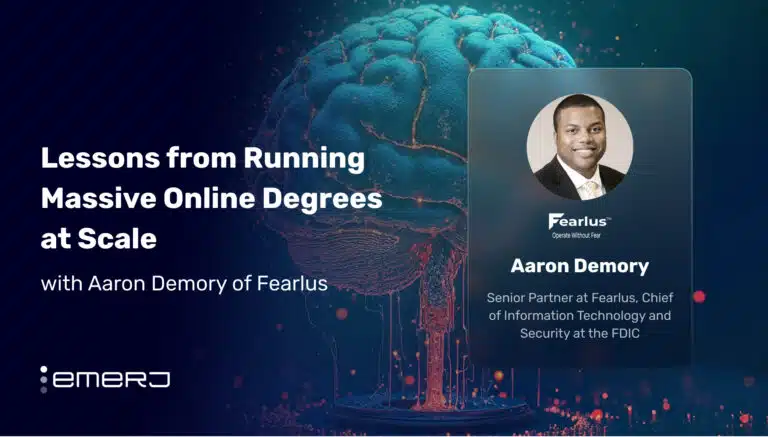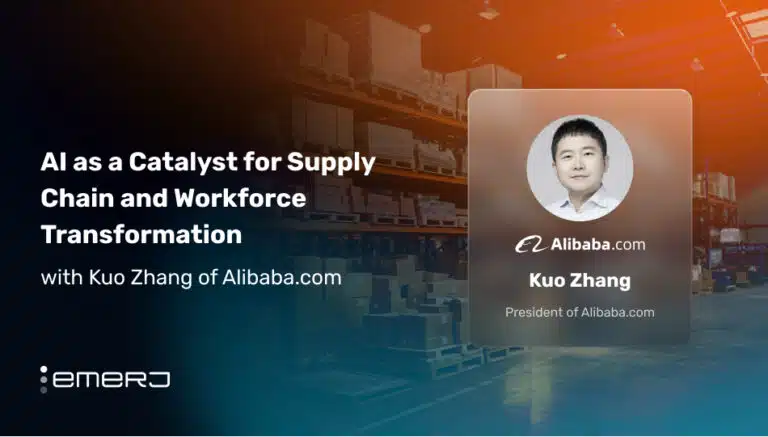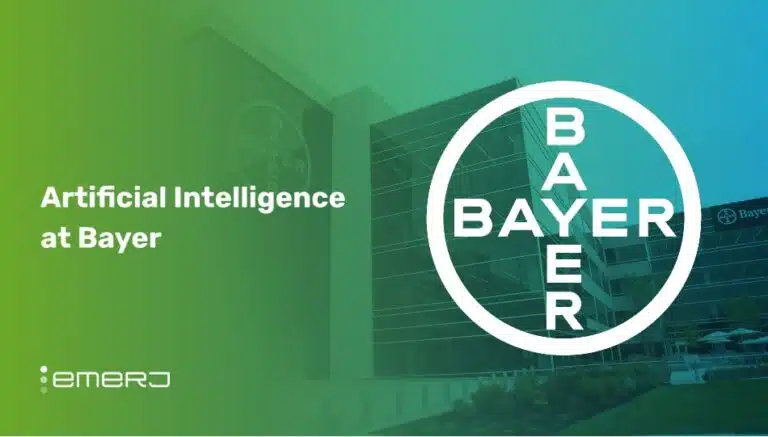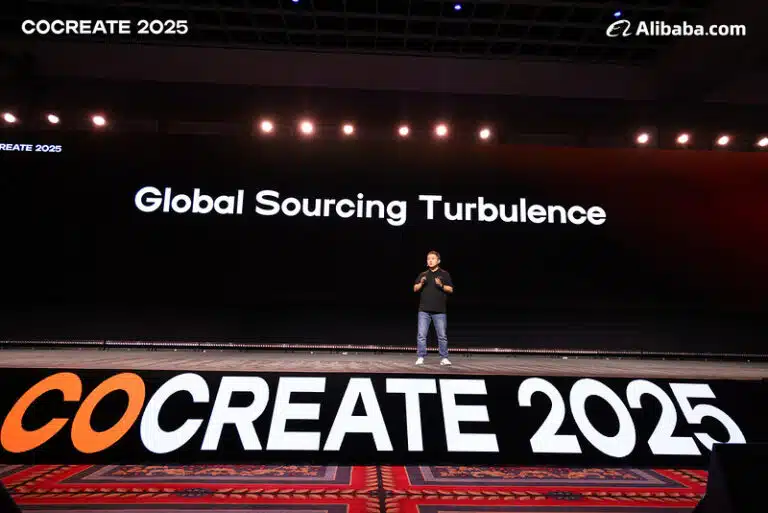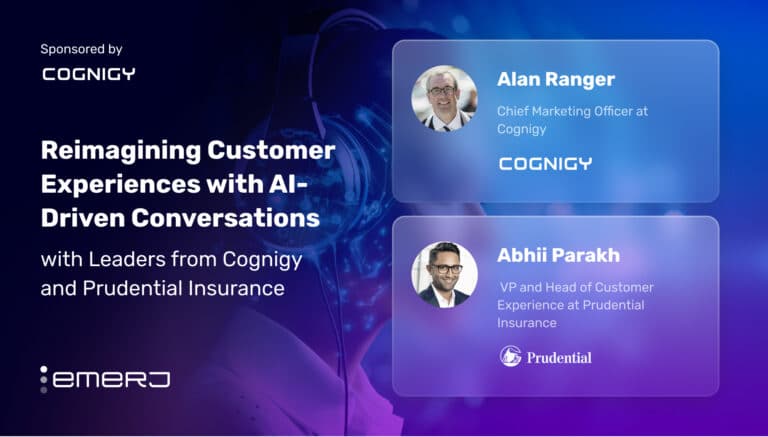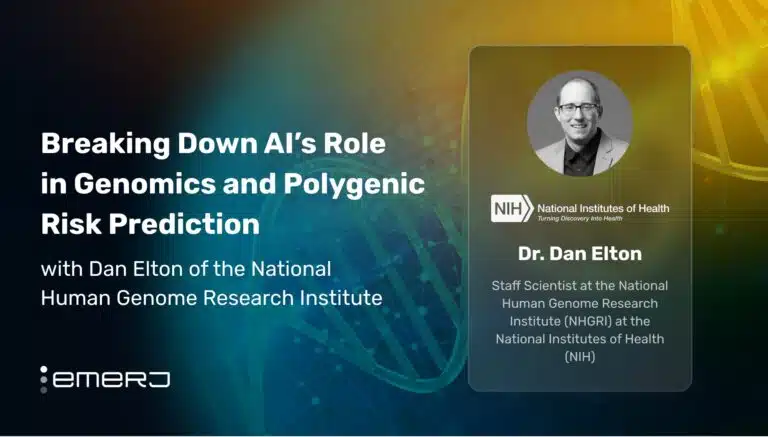Episode summary: In this episode of AI in industry, Innoplexus CEO Gunjan Bhardwaj explores how pharma giants are working to overcome two critical challenges with AI: Data, and talent.
Pharmaceutical data is challenging because the same term (say “EGFR”) might be referred to as a “protein”, a “biomarker”, or a “target”. Gunjan explores how this kind of relevance and context for data – and how pharma companies may need to hire the talent issues involved with making life sciences and computer sciences teams work together productively.
Subscribe to our AI in Industry Podcast with your favorite podcast service:
Guest: Gunjan Bhardwaj, CEO and Founder at Innoplexus
Expertise: Pharmaceutical data, pharmaceutical industry, business management
Brief recognition: Gunjan founded Innoplexus in 2011 and has served as CEO ever since. He held previous roles as a consultant for both EY and BCG. He received an MBA from Pforzheim University in 2006, and a PhD in Business Administration and Management from the European Business School Oestrich-Winkel. Gunjan speaks English, Hindi, and German fluently.
Big Idea
In order to pharmaceutical data right, companies need the right expertise in-house. Gunjan highlights what he seems to be the three main talent types needed to make AI work in a pharma setting. Business readers should note that this same mix could translate to nearly any other business by replacing “life science experts” with “[subject matter] experts”:
- Life science experts: A pharma team obviously needs to have a core of life science experts to help with AI projects. It is not possible to train an AI system on all pharma data and expect to have all the life sciences experts leave and go back to the lab. There will always be entities not understood by the system, or information to be clarified by experts in the field. Humans need to stay ahead of medical research and continually be there to help train the system, ensuring that the machine’s understanding makes sense of the particular life science task at hand.
- Data scientists: A data science team must be familiar with approaches to AI / ML, but must also have a firm grounding in the subject matter that they’re working with – in this case – life sciences. Some of this life sciences context knowledge might come from simply working side-by-side with life science experts (an important way to help both parties learn from each other), but pharma team ideally would want to find data science experts who already have a life sciences background through work or academia.
- People who understand the business: Gunjan mentions that someone must be there to work with researchers to direct their efforts towards the most important business outcomes. “What are we analyzing for?”
Gunjan believes that the companies who make progress in AI in pharma will be the companies that can tie the experimentation efforts directly to business value. Companies who “dabble” with AI applications are likely to do little to excite their teams or shareholders to continue allocating resources to data science efforts.
Companies that are able to generate confidence that they’re marshaling their resources for the best long-term business motives will have success in the long term. In a research-led environment, Gunjan says, it’s common for the business motive to be lost.
(Note: Gunjan elabored on some of these ideas in his recently contributed article about the “third wave” of AI in healthcare.)
Interview Highlights with Gunjan Bhardwaj of Innoplexus
The main questions Gunjan answered on this topic are listed below. Listeners can use the embedded podcast player (at the top of this post) to jump ahead to sections of interest:
- (2:30) At a high level, what are some of the major hurdles to applying AI in the pharma industry today?
- (5:10) You have mentioned that insights from pharma data must be “context aware” – what do you mean when you say that – what are some examples about that in the real world?
- (8:40) It doesn’t seem possible to solve this data problem without bringing in the AI-related talent into the life science organization – what’s being done to bring data science talent into pharma firms?
- (14:20) You’ve probably seen some pharma companies do a better job than others when it comes to meshing AI talent and life sciences talent – what are the commonalities of companies who do this well?
Subscribe to our AI in Industry Podcast with your favorite podcast service:
This article was written in partnership with Innoplexus. For more information about content partnerships visit the Emerj Partnerships page.
Header image credit: Blogs TechNet – Microsoft








